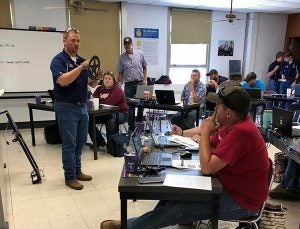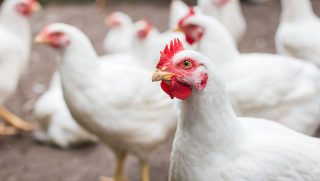Agriculture is the backbone of America — clothing, feeding, and providing jobs to everyone, with a heavy focus on the future of food and tech.
Growing up in more urban area, most people do not have any agricultural experience until they’re placed in their first agriculture class, but can we get more people excited about future career opportunities? Career technical institutes play a huge role in preparing the next generation for the challenge of agriculture literacy, and it’s important for farmers and ag education to have a voice and be supported.
Here are six reasons why it’s essential for these institutions to offer agriculture classes:
1. Helping Promote Agriculture Literacy: Agricultural education helps students with the knowledge and skills to make informed choices in the agriculture, food, fiber, and natural resources systems. As the world faces issues like climate change, food security, and sustainable farming, having a generation well-versed in these areas is helpful to have an advocate.
2. Leadership Development: Agricultural education isn’t just about farming. It provides opportunities for leadership development, personal growth, and career success. The National FFA Organization is a student-run organization that gives students an opportunity to be involved in agriculture and leadership development outside of the classroom! From showing animals to public speaking contests, there is truly something for everyone in the organization, which ultimately may lead these students to pursue careers in agriculture through high school, college and beyond.
3. Experiential Learning: One of the unique aspects of agricultural education is its three-component model, which includes classroom/laboratory instruction, supervised agricultural experience programs (work-based learning), and student leadership organization. This model ensures that students get a mix of theoretical knowledge and practical experience. Through these projects, students will learn skills from farming, business practices, or volunteering in their community.

4. Tagged to Teach Ag: There’s a growing demand for agricultural educators in the U.S., with the supply still not meeting the need. By offering agricultural classes, Career Technical Institutes can produce more educators to fill this gap. For example, Florida FFA provides an Agriculture Education Institute that provides students with the tools necessary to take the agriculture educator track and make a pledge to Teach Ag!
5. Potential Career Paths: A degree in agricultural education opens doors to various careers, including high school agriscience teachers, ag literacy coordinators, agricultural education professors, and more. Some classes include biotechnology, agriculture business, Agriculture Leadership, Vet Tech, and so much more. With the agriculture sector continuously evolving, there will always be a need for professionals in these areas.
6. Historical Significance: Agricultural education has been a part of the public education system since 1917, with the passing of the Smith-Hughes Act. Today, over 800,000 students participate in formal agricultural education programs across the U.S. and is one of the largest student-run organizations. This historical context underscores the lasting importance of agricultural education in our society.
Agricultural education is not just about producing the next generation of farmers. It’s about creating well-rounded individuals who understand the process of our food and resource systems and can lead the way in sustainable practices. Career Technical Institutes have a responsibility to offer these classes and ensure that the next generation is the next advocates for the agriculture industry and can lead to so much more — in technology, mechanics, engineering, and more.
» Related reading: Check out our Agricultural College Guide
Michelle Miller, the “Farm Babe,” is an internationally recognized keynote speaker, writer, and social media influencer and travels full time to advocate for agriculture. She comes from an Iowa-based row crop and livestock farming background and now resides on a timber farm in North Central Florida.



